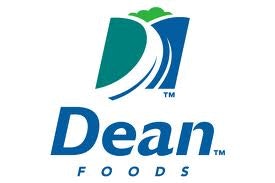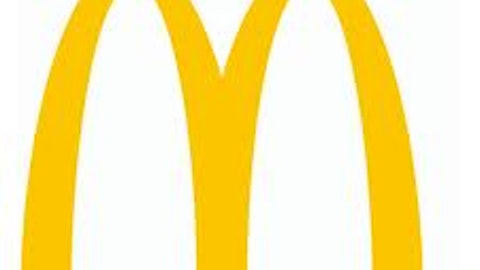Do we need to have 280 brands of breakfast cereal? No, probably not. But we have them for a reason – because some people like them. It’s the same with baseball statistics. –Bill James (American baseball writer, historian, statistician)
It seems many people like breakfast cereals–in traditional and non-traditional formats. The advent of cereal bars has changed the morning breakfast routines of many consumers and opened up new revenue streams for cereal manufacturers. So should investors like breakfast cereal and milk companies?

Concerning their Fresh Dairy Direct segment, the most recent financial reports are for the third quarter of 2012. Operating income was $94 million, compared to $75 million in the third quarter of 2011. Third quarter Fresh Dairy Direct adjusted operating income was $100 million, a 32 percent increase from $75 million in the third quarter of 2011.
Investors should research milk producers who are creative in marketing a basic staple product. In January, Dean Foods introduced a reformulation of their popular brand of chocolate milk, TruMoo. The new product contains 35 percent less total sugar than the leading chocolate milk competitor, and it has 40 percent less sugar than its previous formula.
However, it seems “on-the-go” cereal bars are having an effect on milk producers. Not having a bowl of cereal, among other trends, is quashing milk consumption. Investors, going forward, must research this trend as they check out companies involved in the milk industry. An article in The Wall Street Journal (December 2012 – Ian Berry and Kelsey Gee) related that, “In an age of vitamin waters and energy drinks, the decades long decline in U.S. milk consumption has accelerated, worrying dairy farmers, milk processors and grocery chains.“
Dean Foods’ Fresh Dairy Direct fluid milk volumes declined 1.4 percent on a year-over-year basis, excluding the impact of divestitures. This compares to the balance of the industry, which experienced a volume decline of approximately 3.1 percent on a year-over-year basis, based on USDA data and company estimates. Investors should consider that Fresh Dairy Direct volumes continued to outperform the broader industry, while understanding that milk does have a bit of an image problem right now.
Kellogg Company (NYSE:K) is the world’s leading producer of cereal and a leading producer of snacks and frozen foods. This month, Kellogg’s announced that fourth quarter reported net sales increased to $3.6 billion. This represents an 18.2 percent increase from the fourth quarter of 2011. Internal net sales, which exclude the effects of foreign currency translation, acquisitions, divestitures, and integration costs, increased by 5.3 percent. Full-year 2012 reported net sales increased by 7.6 percent to $14.2 billion. This represents an increase of $999 million from the full-year 2011 results. Their full-year internal net sales increased by 2.5 percent.
Reported net sales growth for Kellogg North America was 7.5 percent in 2012 and 12.3 percent in the fourth quarter. Internal net sales growth was 3.6 percent for the full year 2012 and 5.5 percent for the fourth quarter. The U.S. Morning Foods and Kashi segment posted internal net sales growth of 2.7 percent in 2012 and 6.3 percent in the fourth quarter.
Kellogg’s continues to innovate with their product lines. Investors may want to consider a company that continually transforms a staid brand like Special K into something trendy and new. They now have their Special KFlatbread Breakfast Sandwiches. The new sandwiches have between 180-240 calories, are a good source of protein and fiber and are microwave-ready in 90 seconds. Consumers want “fast and healthier.” Investors should consider that consumers are getting just that from Kellogg’s, which could pave the way for continued net sales growth for 2013.
General Mills, Inc. (NYSE:GIS) is one of the world’s largest food companies. Their cereal brands include Cheerios, Lucky Charms, and Wheaties. In December 2012, General Mills reported results for the second quarter of fiscal 2013. Net sales grew 6 percent to $4.88 billion. Through the first six months of fiscal 2013, their sales grew 5 percent to $8.93 billion.
A number of new products made strong contributions to net sales growth in the second quarter including Peanut Butter Multigrain Cheerios. The company reported that established brands such as Lucky Charms and Chex cereals, and Fiber One 90 calorie snack bars, among other products, contributed strong sales gains.
Here, like Kellogg’s, General Mills is building on the strength of a core brand. Cheerios is on trend with consumers’ love of most things peanut butter. In addition, the cereal’s remaining on trend in the “marketed as healthier” multigrain category. Cheerios is a tried and true product that’s trying to maintain market share by appealing to a variety of taste buds. Investors should consider tried and true brands of storied companies as part of an investment portfolio.
I think investors can like breakfast cereal and milk companies. They say breakfast’s the most important meal of the day. Breakfast cereal and milk companies may be nutritious to a stock portfolio as well.
The article A Breakfast Club for Investors originally appeared on Fool.com and is written by Michael Ugulini.
Copyright © 1995 – 2013 The Motley Fool, LLC. All rights reserved. The Motley Fool has a disclosure policy.




